There is a squeeze on availability for Hawaii vacation rentals as the state and counties work to put an end to illegal operations by vacation rentals. On Kauai, the number of illegal rentals has dropped from perhaps 1,500 to under 50.
When Airbnb first started, it was meant to help visitors find low-cost accommodations, sometimes in neighborhoods that had no other places to stay and help homeowners with extra income. The idea of living like a local had its appeal. But that was then and now things have changed quite dramatically. Not only has Hawaii put brakes on this big time, but other cities have too across the country and the world.
A number of years ago we thought about one Airbnb in NYC, but then found out we would have to be very inconspicuous moving luggage in, always lying to people in the elevator and building about who we were, among other strange things. Instead, we ended up renting from a homeowner in the West Village who lived in a Town House and rented the lower floor. We have stayed at a similar rental in San Francisco too where the homeowner lived in his house full time and rented the lower level.
Kauai partners with Airbnb and VRBO to shut down non-compliant rentals.
The counties have developed relationships with vacation rental kingpins Airbnb and Vrbo/Expedia to accomplish this. On Kauai, those companies have pr0hibited rentals without officially approved transient vacation rental status. The companies also report to the county all rentals that are present on their websites for validation.
Kauai’s mayor said, “our successful collaboration with Expedia Group highlights what can be done when we work together to protect our community while welcoming responsible vacation owners and their guests.”
Vacation rental controversy on Maui.
A recent Maui County Council meeting had over 100 people speak passionately on the subject of vacation rentals. That as Maui is considering various measures to curb illegal rentals and perhaps reduce the number of visitors too.
Maui is contemplating a moratorium on adding any new vacation rentals, which bill is in committee. At the same time, there are nearly 7,500 rentals that are within apartment zoning areas, that may be phased out over time. A vote on that measure was postponed.
The community is divided on what approach to take if any. Some are concerned about how reducing the Maui travel industry can be sustained inasmuch as, at present, there is nothing to replace it. At the same time, others are concerned that there is no affordable housing available and it is virtually impossible for residents to find apartments.
Honolulu makes moves towards a wide-scale reduction of vacation rentals.
Recently the Honolulu Planning Commission approved measures to help reduce illegal vacation rentals. First up is the elimination of residential neighborhood-based vacation rentals in the hopes of creating more long-term rentals for residents. The way that will be accomplished is to change the way that short-term rentals are defined. Going forward, anything less than 6-months may be considered short-term, instead of the previous definition of 1-month.
In an interesting comment, we were just told, “I own a condo on Oahu. Legally, I can get around this by renting for 30 days or more. If they only want to stay for two weeks, they still have to pay me for the month. My rate is still cheaper than a hotel. The catch is on my end. To be legal, I can’t rent to anyone else until the 30 day period is up. Other than that, no problems. I would still have to collect the TAT tax, just like everyone else.”
Do your research before booking.
If you are planning to use Airbnb or VRBO, check what the city policies are before renting. Remember too that if you go with a professional vacation rental company, who many times put their listings on Airbnb and VRBO, you give yourself extra protection for any problems that might occur.
What have your experiences been? Do you agree with tighter controls on illegal rentals?
Get Breaking Hawaii Travel News
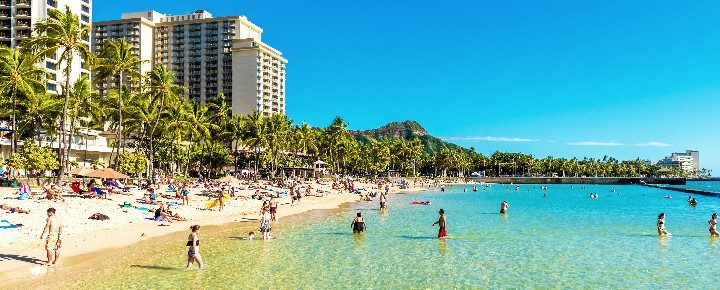
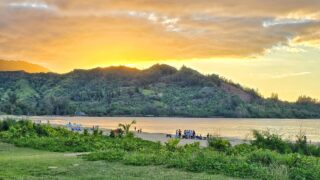
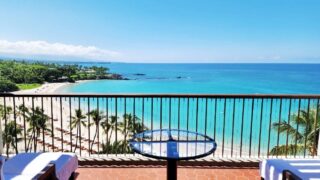
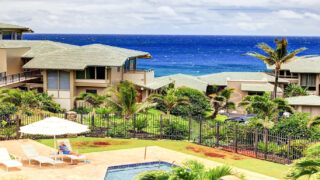
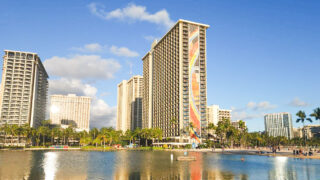
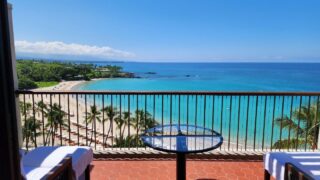
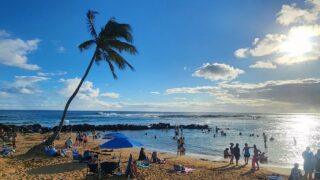
Great read (article).
Florida…That’s where I’m heading from now on. Gov. DeSantis gets it and he’s a great leader for the state. I love Hawaii BUT its over for me. Good luck with the nonsense. Florida welcomes me with open arms and values my hard earned dollars!
Thank you for this. My question is about “hosted” short term rentals where the homeowner lives on the property full time. Is it possible to stay in their ohana legally? I am curious about all the islands, but specifically the BI. The property is in an established neighborhood close to the heart of Kona.
Thanks again!
Angel
Hi Angela.
Perhaps someone more familiar with the Big Island rules can speak to your question. On Kauai, those were shut down by the county some number of years ago.
Aloha.
I am a legal STVR owner, but full condo rental. Having gone through the STVR registration and approval process, I believe that I can answer your question.
As long as the owner has a registered STVR permit, it is a legal rental, even though it might be in a neighborhood. Those STVR’s in what’s deemed a “resort zone”, that permit automatically renews. If outside resort zones, the permit must be renewed annually. Check with the owner and ask if permitted, perhaps request a photo.
I have stayed in several vacation rentals in Kailua, always with good results and with owners on the premises. I think that makes a huge difference. With owners on the mainland, or otherwise out of town, it’s too easy for a rental to turn into a party house and ruin the whole neighborhood for everyone.
While I tend to be of the same mind as SandyB that the owner should be able to do what they want to do, it seems like there is another point to be made. The homeowner that is bounced out or kept out of the short-term rental pool is going to rent their place for the long term for the highest amount the market will bear. Because of the shortage of non-vacation rentals, our recent rental listing for a single-family residence got bid up over what we thought was a reasonable market rate. So, unless
Original message cut off …
So, unless someone turns their former short-term rental into a dormitory, you will likely not see it be an addition to inventory intended to solve affordable housing availability.
I suspect this is a situation brought on by government being directed to pick winners and losers in its post-2020 COVID shutdown of the tourist rental housing market. Visitors staying at home-based locations aren’t adequately feeding the big bears and their cub establishments in Honolulu and other politically (dollar + voter) dense areas.
Tax loss? Yes, but adding a few wink and nod tourist paid fees and taxes on the bears will keep the state’s bean counters happy.
Right or wrong we do have too many tourists on Maui and it’s unsustainable for logistical and environmental reasons.
I agree that there should be a grandfather clause or something for those who already are in the rental pool as they had those laws in place when purchasing.
And new developments or future sales of those properties I’m fine with eliminating rentals on them.
Thanks guys for all the great information
Hi Chris.
Thanks for your many comments!
Aloha.
We have been using VRBO since it began. We just don’t care for hotels especially since they’ve begun to charge extra resort fees for things we’ll never use. Frankly, they are charging for things that were the reason to stay at a hotel – pool, internet and parking.
We have never had a bad experience staying at a home rental. The homes are clean, most include snorkel gear, chairs, coolers and beach towels. Our hosts have been available and friendly. Hotels would love to seen home rentals gone.
The Honolulu Planning Commission is not merely trying to shut down “illegal vacation rentals”. It is trying to shut down legal rentals for 30 days or more, which have long been legal in the City and County of Honolulu. Further, Honolulu entered into a judicially-approved agreement acknowledging that landlords renting for 30 days have no control over when their renters leave, and it is entirely legal to rent for a 30-day period to a person who decides not to stay for the full 30 days.
This is nothing More than stealing one persons property to give it to another. Its wrong. These properties were purchase within the current laws. To pull the rug out from under so many legal owners does little than show what and who Hawaii truly is.
Having Aloha is nothing More than a marketing slogan.
This seems to me to be totally unfair to people such as I who visit my family yearly in the winter in Kailua. There are no hotels or motels in Kailua or anywhere nearby. Does Hawaii want to shut down tourism entirely? And what about people visiting family with whom they cannot stay?And the increase in the tax seems like an unfair burden upon visitors who make up a substantial portion of each island’s economy!
Personally, I don’t care if someone’s vacation rental is “legal.” Who is the government to say I can’t pay someone to stay at their place? (I realize there is a housing issue for residents that needs to be addressed, but these policies seems a bit “knee jerk.”)
I also always prefer to go direct to owner. Airbnb adds an insane amount of fees and vrbo adds quite a bit too. Just my 2¢.
The answer was contained in your post. Housing for working folk is limited. Estimates are for 2 million “affordable” units in the next ten years. Parking in neighborhoods is a major problem for un-permitted units. Zoning is common for housing. This zoning STVR out of neighborhoods is no different. The problem is that many people take your attitude and decide that they are special, don’t need to pay attention to anyone else.
Hawaii is going about it the wrong way.There should be balance.I once was a local. My Mom still lives there.Don’t stop growth.Hawaiians complain they are suppressed.They do it to themselves.Everyone knows Hawaii survives on tourism.Shut it down locals lose their jobs. Painters,contractors, electrician,plumbers,cleaners,car rentals,airlines,Uber & restaurants.Tax collectors lose revenue that pay their salary.Let people thrive.Start 70/30 owner occupied on townhomes.Condo& homes(no hoa)100% rental
I completely agree with what the state of Hawaii is trying to accomplish. They are just trying to put things into places they are supposed to be. That should make life easier for everyone.
If a person owns a property, they should be able to do what they like with it, include make money, without government interference. Shameful the government is always trying to get their hands into our pockets.
Will not supply and demand considerations now increase prices for Hawaiian vacations?
What might those that receive significant income (which Hawaii doesn’t mind taxing) from participating in home-based tourism now do? Check the vaccination status of visitors at the airports?
It might be more merciful for Hawaii to just euthanize its tourism industry, turn off the lights, and put its people to work in a state sponsored Great Depression style Works Program.
Info about Honolulu is incorrect… there is a bill No. 41 proposed to limit
certain areas to short term rental and all other areas to min 180 days rental
period… the bill has its first of FOUR readings and the second reading will
be in January… allowing time for review and input…
Of course such govt action will have unintended consequences with higher hotel rates (along with higher hotel taxes) and lower transient rental income.
Dropping tourism to only the rich… ecofriendly ???
I believe the Bill 41 referred to is Bill 41 from the 2019 Legislature. This would be the bill, among other things, provided for 6 enforcement personnel to take care of the illegal rentals. Never hired a single enforcement person. Illegal rentals would not now be a problem if the State had hired the authorized enforcement personnel. The legal rentals with GET and TAT licenses pay taxes too.
You didn’t mention Hawaii Island, but the STVR system has worked well here. Please note that our STVR (vacay rental)has been listed for three years on AirBnB. It is a full rental condo, and our experience has been nothing like what you mentioned in the NYC example. Also, it’s easy to check the past comments, overall points rating and owner history before booking. Booking through a management company will Always result in higher costs than booking with a direct owner.
When you rent a hotel room or any densely populated accommodations such as a condo or town homes, you do not get to choose your neighbors. Increasingly, my experience is that 25% of your nearby neighbors just do not know how to behave. My strategy for hotels is that you should only book at the 3-star level and bring ear plugs. For VROB or Airbnb always rent accommodations that are completely separate unless the owners reside on the property.
Thank you for great content!
Hi Hough.
Thanks for your comments and for those nice words.
Aloha.
I am unsure about what constitutes an illegal short-term rental. I am planning on moving back to Hawaii after many years, with my new partner, and we are planning on renting while looking for a home or condo to buy. Would it be necessary for us to sign a one-month lease, or a six-month one? Could we arrange a long-term stay in a hotel? I’m not clear on what the legal ramifications are.
Any stay over 29 days is considered a long-term rental. That would open you up to more available inventory if your search and closing takes that long. You didn’t indicate which island, but there are legal STVR (vacay rentals)available on all islands. Your hotel idea would be pretty pricey by comparison.
I own a condo on Oahu. Legally, I can get around this by renting for 30 days or more. If they only want to stay for two weeks, they still have to pay me for the month. My rate is still cheaper than a hotel. The catch is on my end. To be legal, I can’t rent to anyone else until the 30 day period is up. Other than that, no problems. I would still have to collect the TAT tax, just like everyone else.
I haven’t done this because Covid made travel here not worth it. But in the future, I can.
Help me out here, what constitutes an “illegal rental”?
If a condo on Maui is located in a “Apt zone” then STR’s are a permitted use. A legal rental advertised on Airbnb or other sites must include their Tax ID #. An illegal rental would be a “residential zone” where rentals are not a permitted use. Legally the owner needs to apply for a conditional use permit which would be rejected due to recent caps by the County Council.
Currently the Planning Committee is drafting a bill (PLSU 34) to reduce the # of rentals in Maui by 3,000.
On Maui, a rental located in a “residential zone” is not a permitted use and would require a conditional permit which would be rejected due to a recent cap on permits. Any legal rental listing is required to include the Tax ID #. STVR’s located in an “Apt zone” are a permitted use, but that’s changing.
The Maui Planning Committee is drafting a bill (PSLU-34) to eliminate 3,000 rentals by 1/1/22. The stated goal by the chair person is to reduce the number of tourists.
Thank you Galen
Aloha. “ The stated goal by the chair person is to reduce the number of tourists.” Uh-huh. One of the bylines on this article is trumpeting $62 airfares. That is so cheap it will not even cover the fuel cost per airline seat one way. This seems to be a game of blame someone else for overcrowding, because apparently nobody is responsible…
Mahalo
Again Hawaii is shooting itself in the foot. I am a travel nurse. Most of the time our contracts are 13 weeks long. Hawaii does not pay it’s travel nurses as well as the mainland because it’s considered a desirable contract. That being said, we still have to live on the pay while being thousands of miles away from home AND still paying a mortgage, taxes and utilities. If Hawaii continues to restrict and tax the heck out of us we will just not come.
I am responding to your post since I am a recently retired ER Hawaii RN.Hawaii has depended on outside nurses for too long ,and has neglected to train new graduate RN’s. Maybe this housing situation. will force Hawaii to train Hawaii nurses into specialty units and not depend on outside help.
Not only nurses come to Hawaii on rotation. Doctors, physical therapists, speech therapists, and other medical specialists often do rotations to the islands and that enriches the medical care available to all of us, but especially those of us who live on the outer islands. I hope the new “rental regulations” on all the islands take into account that some short-term rentals are necessary and legitimately needed.